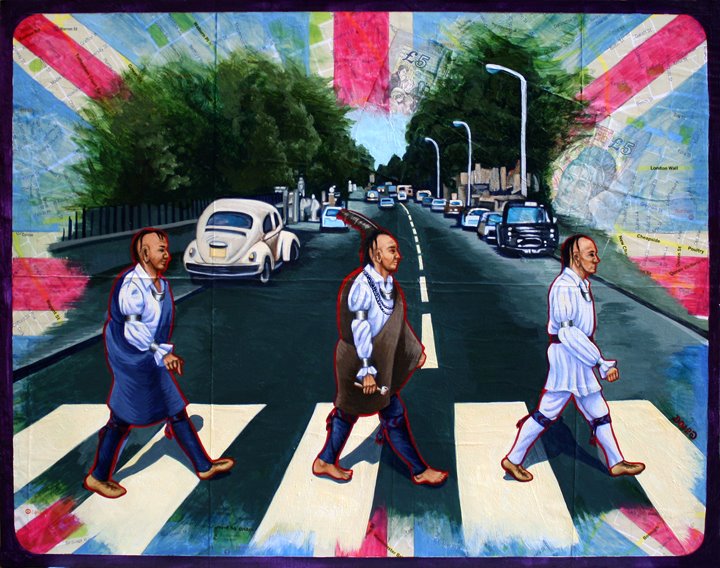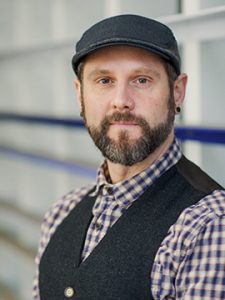

“London Calling” by America Meredith
London might seem like an unlikely place to find Indigenous history. But from the sixteenth century onward, hundreds of Indigenous people travelled there – willingly or otherwise – from territories that became Canada, the United States, Australia and New Zealand.
A new UBC Global Seminar launching in June 2016 aims to uncover their diverse journeys. Offered by UBC’s First Nations and Indigenous Studies program and taught by history professor Coll Thrush, the seminar will bring eight UBC students to London to explore the city through the experiences of Indigenous captives, performers and diplomats who left behind significant cultural and political legacies.
“Even here at the centre of empire, there are important Indigenous stories to listen to,” says Thrush, whose upcoming book, Indigenous London: Native Travellers at the Heart of Empire, served as the inspiration for the course.
Some, like the Powhatan noblewoman Pocahontas, were celebrated in English high society, while others were vilified or presented as exotic spectacles. A few travelled to England with diplomatic goals, including the 1906 delegation of B.C. Chiefs who met with King Edward VII to formally request that he repeal potlatch and hunting bans and honour promises concerning compensation for alienated lands.


Coll Thrush is an associate professor of history at UBC, where he is also affiliated with UBC’s Institute for Critical Indigenous Studies. He teaches Indigenous, environmental, cultural and world history and is part of a faculty working group on Indigenous classroom issues and decolonizing pedagogies.
“Most of the students in the group are of Indigenous heritage, so they will become part of the story we’re exploring, as will those of us of settler ancestry who are along asteachers and allies and fellow travellers,” says Thrush. “I’m hoping that all of us will take away from the journey new ideas about how histories migrate around the world in unexpected ways and how they continue to shape the present.”
The seminar begins with a week in Vancouver, followed by two weeks in London where students will investigate archival materials and consult with Indigenous curators at the British Museum, walk Trafalgar Square searching for Indigenous traces, and visit Pocahontas’ tomb in Gravesend, Kent – a town that markets itself using her imagery. The course ends with a week back in Vancouver where students will share what they learned with their colleagues.
Thrush partnered with Dr. Daniel Justice, head of First Nations and Indigenous Studies (FNIS) to develop this seminar, which supports the department’s goals around place-based learning. “As FNIS began to develop place-based approaches, London came up as a possible site for a new kind of educational experience for our students,” explains Thrush. “It’s also one that challenges our idea of where Indigenous people and histories ‘belong’.”
Thrush hopes the seminar will prompt students to connect historical Indigenous narratives in London to ongoing struggles at home.
“One of the things that is most central to understanding Indigenous history is to know that the past isn’t past – that the power dynamics, political struggles, and cultural practices are ongoing in the present.”


